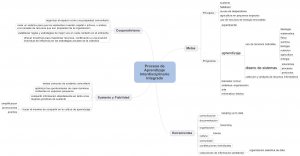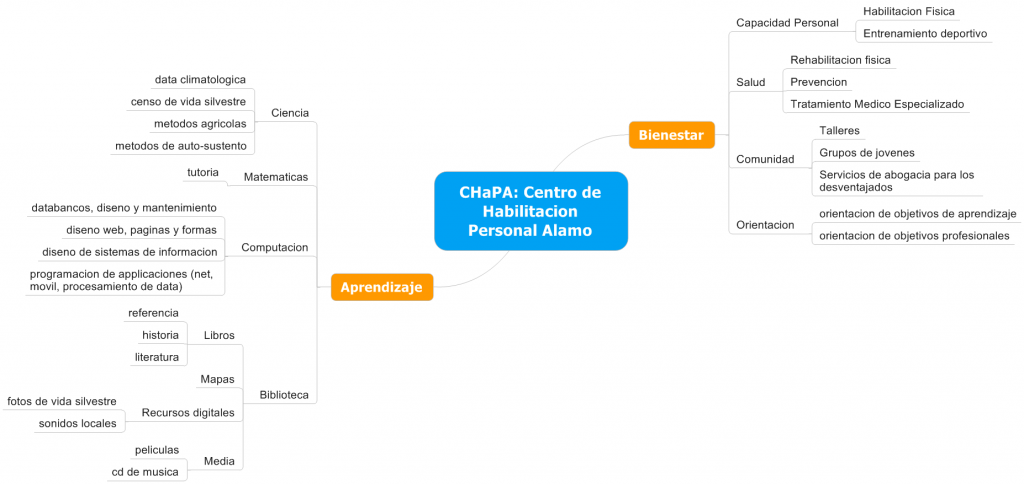I get this feeling my future NOW is starting to shape up. Everything that’s been mattering to me seems to finally be coming together into a vision of how I can both work and play in the domains I enjoy. I found myself catching up with Josh from NF.org about the possiblity of building out the learning program on Intro to Computing and Information Resources that I conducted two years ago.
It made me dig deep about what it is I want to be doing day to day. The simple answer seems to be that I want to develop information tools for everyday people that are working on sustainable agriculture projects. But, getting the masses turned onto Sustainability seems like an open market ripe for giving back to the community by way of advising on how to develop programs. For me, I guess, it’s all melding from what I’ve been inclined to get into these past couple of years:
+ change management
+ usabiliity and productivity research
+ program continuity
+ collective intelligence
+ green power
+ systems engineering
+ industrial design practices
+ collection taxonomies
+ information assurance
+ community learning programs
+ sustainable systems, permaculture
+ property rehabilitation
+ self-reliance, wellness and happiness
All of it ultimately applies to my interest in building learning programs around the concept of community intelligent resource management. Been obsessing over that, if you will. People barely understand their collective capacity because they lack the tools to understand the fullness of resources around them. Moreso, they sometimes haven’t settled the means by which they could help each other out.
I’ve learned its only through Engagement that everyday people can Exchange, Experience, and create greater Value. So, how do we position the technologies so that they are best enabled towards productivity and happiness, for everyone?.. and I mean EVERYONE! Well, it turns out that THEY are best positioned to empower themselves, if handed the right tools. I truly believe in letting ideas grow through giving direct ownership so someone exercises their creative means proper. So, I’m curious about what the learning program components would be in this scenario.
From the last program we ran together on intro computing at NF.org, I learned alot! Some learners had scarce an education. Others had not really been in front of a computer at all. I had not anticipated for slowness in typing; in them not being used to memorizing passwords. Looking back on it, I realize how for some of them it must’ve really been intimidating… the rest were very brash and perhaps knew enough to get around the machine. In the end, I was flexible in how much I pushed these groups into the web tools; and I got to really enjoyed watching the process of discovery through them!
Now, I think the whole experience of learning about computers could still be structured towards building a community website, which we didn’t have time for–some of it I layed out but never stylized. The key is to spend a little less time allowing them to practice keyboard skills while chatting or emailing. Instead they should have homework, two 30 min sessions weekly, to sign in at the computer center and practice.
With the tools that exist today, they could learn more about creating a joint domain space in a place like Ning or WordPress. But, I’d never say it that way.. what I did learn about change (beliefs, wants and fears) and about community development, while I was considering the issue of Happiness and Wellness, was that there’s a gap in being able to implement the programs long term. And, from reading the Dalai Lama’s guidance on community building, the main issue does turn out to be the creation of Trusted relationships.
BK and I pondered this question of Trust, and how you can develop it.. how do you motivate people to Trust each other? and I posited that if you started by bringing them into group challenge exercises to come up with ideas to eliminate problems; or, to build simple structures (paper windmills, water courses, school interdisciplinary projects for kids to resolve), you could get a greater degree of Trust, as people spent more time together. If you added a structured participative organization, a cooperative for example, then you could even provide an ownership incentive that demanded not only Trust, but Dedication from each member.
So, in my view of the new learning program about computing, the students would be guided to think first about their community needs, and how those are laid out into requirement lists. Then we could talk about stepping into getting email accounts and doing research. Each person would be assigned their category of interest to build a list of community resources. We would talk about saved files, organizing documents, naming and tagging documents. Finally, they could build a small joint website, while guided to collect pictures for it and documents and links, independently–perhaps even some video.
While I’m describing it, I’m thinking already that I’m perhaps a bit ahead… but, these are the work skills of this knowledge economy. They need to learn how to dig, and share, together.
One experience from building the last learning program on info resources, was that it really helped me later when coordinating projects at the Information School last year. I was forced to adjust my classroom methods to the different styles of each individual at a terminal–6-12 in a room! Some could be pushed farther along into document editing, and uploading to their cloud space; but, others had to be given simple tasks like finding a flower or favorite dessert image on the web, and saving it locally. It forced me to use semi-structured plans, to be sure everyone got my equal time.
Anyway, this all builds into my need to prepare to hold seminars at the experimental community sustainable development station I have in mind. The location where I want to start is not isolated, but rather on the outskirts of a metro area. So, it serves as a bedroom country community, like North Bend would be around here. Which makes it ideal as a headquarters for the development of small seminars on maximizing productivity of oneself, the community, and in sustainable natural resources management.
The 1st congress on the Island on Sustainability Development Strategy is underway this year in PR. I’m going to register to help work on the objective towards a strategy for the Economic Development domain and the Education domain. How could I not? I see a big break to help resolve some important information problems!
Strange how these career transitions do start to play out, eh?!
Maybe I’m facilitating a lesson plan this Summer. Perhaps I might turn out to be advising through some firm that encapsulates these Loves of mine. Or, else, I could end up just Digging Holes.
Lots of work that I want to make time for to structure how SPAKL could take a shot at the needs in the PR market for sustainability information resources. Someone needs to simplify the message, the process.. *SPAKL stands for “Simplifying Parents And Kids Lives”!
Funny how passions have a way to come full circle and open doors like that! Cheers!
M.E. ;P

